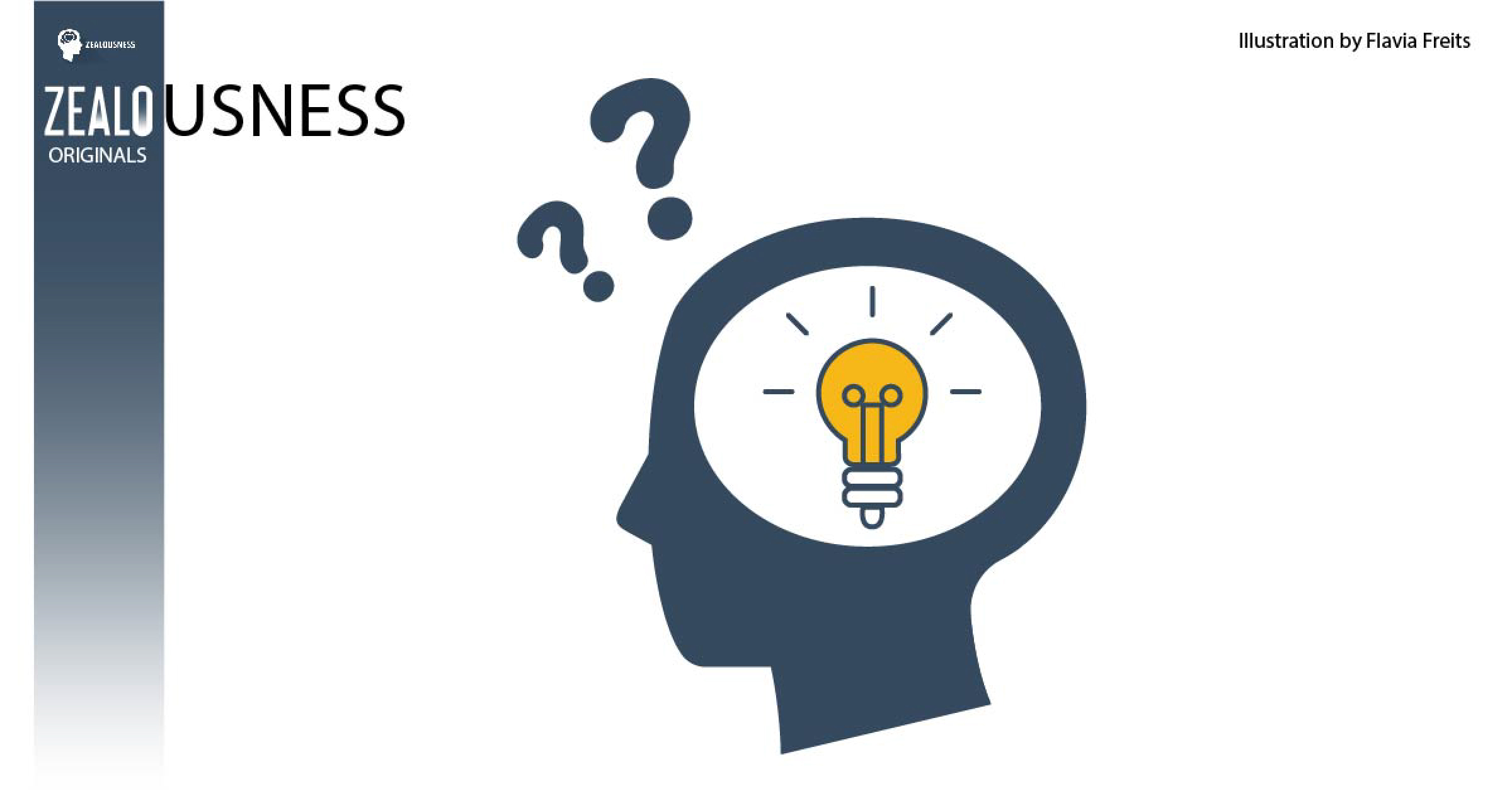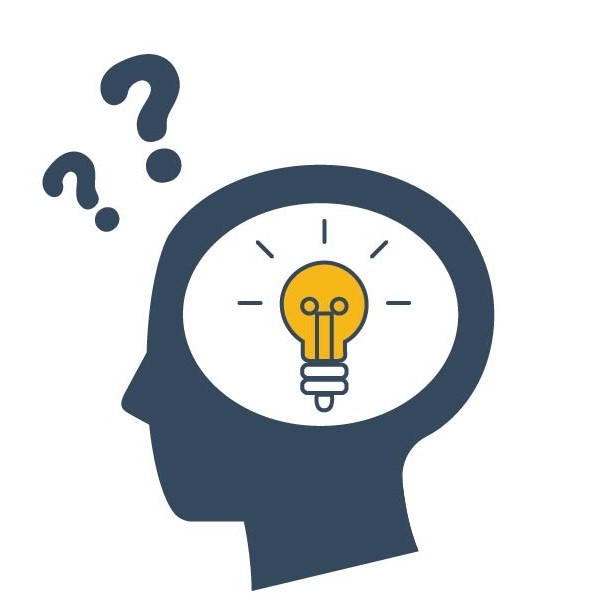After much effort, as names, definitions, sights, and other data of sense, are brought into contact and friction one with another, in the course of scrutiny and kindly testing by men who proceed by questioning and answer without ill will, with a sudden flash there shines forth understanding about every problem, and an intelligence whose efforts reach the furthest limits of human powers.
~Plato, “The Epistles”
What is critical thinking?
Critical thinking is based on a concept from the teachings of Socrates, known as the Socratic Method, that dates back to ancient Greece. However, the term itself originated in the mid-late 20th century. Generally, critical thinking is the mental process of analyzing facts to form a judgment. It is considered to be thinking about thinking.
The word “critical” derives from the Greek roots: “kritikos,” which means to discern a judgment, criterion, and standards. Etymologically, it implies “discerning judgment based on standards.” Even so, there is not just one clear-cut definition for critical thinking. Instead, there are several definitions based on the rational, skeptical, and unbiased evaluation of facts. According to Webster’s New World Dictionary, critical thinking means “characterized by careful analysis and judgment.” “Critical,” in its strictest sense, implies an attempt at the objective judgment to evaluate qualities and flaws. It doesn’t mean to be a critic in the negative connotation of the word, but to discern and make clear judgments. It means to perceive Knowledge, to refuse nonscientific data, and to examine all information. To think critically means being open-minded, well-informed, able to judge the arguments, and come up with the right conclusions.
Critical thinking is based on self-discipline and is a soft skill that is inherent in our personalities. Like any other skill, critical thinking can be learned and developed. It does not involve accumulating information but is instead about using the information to deduce facts and results. It is an intellectual and discipline-driven process that is used to skillfully apply, analyze, synthesize, and evaluate information gathered from observation, experience, reflection, reasoning, or communication. This information guides you toward your beliefs and actions.
Why is critical thinking important?
When we research the history of critical thinking, we find that human thinking, if left by itself, can gravitate toward prejudice, overgeneralization, fallacies, self-deception, rigidity, and narrowness. By emphasizing critical thinking skills, we can minimize these errors by equipping humans with the capacity and means to develop good reasoning through education and self-awareness.
The basic concept of critical thinking is to control our own minds, be in charge of our lives, and improve them under our self-command and direction. This requires self-control and self-examination, Knowledge of how our minds work, how we can monitor them, and how to modify their operations for the better. When we turn critical thinking into a habit, we can make decisions by reflectively examining our impulses and customary ways of thinking in all dimensions of life.
In practical applications, this capacity to reflect makes critical thinkers into active learners, not just passive recipients of the information. They can sift through information and think about it clearly and rationally, understanding the connection between ideas. In fact, there are several examples of human activity where critical thinking can be applied. According to researchers from the University of Hong Kong, these include the following:
- Critical thinking is a domain-general skill – It is important in every path you choose to walk in your life. If you work in education, research, finance, or law, then critical thinking is crucial. But critical thinking cannot be restricted to just these careers. It is actually an asset for any career you may choose.
- Critical thinking improves language skills – Thinking clearly and systematically can improve the way you express your ideas. In literature or any other social science, you improve your comprehension skills when you critically analyze texts.
- Critical thinking promotes creative problem-solving – In order to find creative solutions in the workplace, you don’t just need new ideas; your ideas also need to be useful and relevant to the task. Critical thinking helps you evaluate new ideas by selecting the most useful ones and modifying them when necessary.
- Critical thinking is a perfect skill – It enables you to know yourself better. Everyone wants a meaningful life, and for this we need to justify and reflect on our principles and decisions.
- Critical thinking is the foundation of science – Science could not have evolved as quickly as it has without critical thinking. Scientists have to observe and use reasoning during experiments to make hypotheses and confirm theories.
What are its benefits?
Not just people, but nations throughout the history of mankind have benefited from critical thinking. It may seem insignificant, but without it we would not have the desired results in all walks of life. Skills such as curiosity, problem-solving, analysis, and many more are part of everyday life.
Critical thinking encourages curiosity, which enables us to better comprehend the world that we live in and our experiences in it. This journey starts from the moment we enter school and lasts throughout our lifetime. Critical thinkers are curious by nature and have an interest about everything around them. They value any culture, belief, and view across humanity, and as a result, they are lifelong learners. Their inclination to think critically, even about the simplest of issues, reveals their desire for constructive results. They question everything and at all times, finding satisfaction when they take into consideration all sides of a problem or the facts concealed within all modes of data.
People with strong critical thinking skills are great problem solvers. In fact, problem-solving skills are inseparable from critical thinking. Future generations will have to solve the problems they inherit and will need to figure out imaginative solutions. For challenges such as global warming, overpopulation, pollution, healthcare, water shortages, the best minds will need to solve them creatively and innovatively.
Critical thinkers are also born creative thinkers. This skill is rated as the second-highest indicator that kids will thrive beyond school. In fact, creativity is defined as a requisite skill in the collaborative modern workforce. In business, marketing, or professional alliances, people have to rely on creative skills. Creative people question everything and are not afraid to step outside of their comfort zone. Instead of arguing about limitations, they ask “how” or “why not?” This offers limitless potential.nCritical thinking is crucial for whatever career path you may choose, whether it be science, law, medicine, journalism, or analytics. This skill is the most desired in the workforce because it helps with information analysis, thinking outside the box, and solving problems with innovative solutions. Because of their strong analytical skills, critical thinkers make better decisions, most of which happen subconsciously. This also makes them better citizens because they cannot be manipulated by propaganda. Instead, they are more independent and can form their own opinions. They see the entire picture or what is below the surface in the world they live in.
Why should critical thinking be developed at school?
Without the opportunity to cultivate self-discipline and thoughtfulness, there is a high chance of living life in a more or less automated, uncritical way. Most people might live life without really taking control of the people they are becoming, without developing and acting according to their full potential. But if we do this, we are likely to hurt ourselves and the people around us, to miss the opportunity to make our lives and the lives of others happier, productive, and meaningful.
Based on this viewpoint, critical thinking is a crucial practical goal and value. It is a way of living and learning that empowers teachers and students in quite practical ways. If we take it seriously enough, it could lead to a revolution in every dimension of education: how we formulate rules and relate them to our students; how we motivate students and cultivate reading, writing, speaking, and listening skills; and what we project for them inside and outside of the classroom.
If we want to make critical thinking a fundamental value in our schools, we must first apply it in our lives. We need to be active practitioners of critical thought daily. We need to present our students with a model of examining, assessing, and improving our lifestyle reflectively.
By acknowledging that critical thinking is a fundamental skill, it can be taught and should be taught in a directed way through the practice, evaluation, and testing of ideas. This is not a simple product of taking college courses, even courses whose subject matter requires critical thinking to succeed. Stephen Brookfield emphasizes that “a willingness to risk experimentation in one’s teaching is important for modeling change and promoting critical openness in learners.” To that end, it is the responsibility of the educators to influence if a student will learn critical thinking skills in his academic journey.
How does critical thinking benefit the classroom?
Teachers who teach critical thinking enable their students to develop a better understanding of and greater control over what they learn. This way, they participate more actively during the learning process and ask more challenging questions. Students apply what they learn in school to their personal lives, so having such skills often impact them both now and in the future.
By developing critical thinking skills, students are more likely to achieve academic and job success. Using critical thinking skills gives students a broader view from which to see the world and allows them to make better decisions in learning and life. In the past, educators believed that Knowledge was enough for students. However, this paradigm has changed with instant communication and the desire to know as much as possible and as quickly as possible.
The huge progress in technology and the invention of the internet has radically changed the teaching-learning process. Students don’t just learn everything in school like their predecessors, but they instead need to be adaptable to keep up with changing methodologies. With ideas and information of any kind just a click away, students have to develop critical learning skills to evaluate and accept what is accurate and not. As Edward de Bono writes in the book Edward de Bono’s Thinking Course, ”Knowledge is not enough. The creative, constructive, design and operating aspects of thinking are just as important as Knowledge.” Students themselves must become the inventors and the critics of the new information. The goal of critical thinking is to learn in a deeper and more effective way, to give better solutions, to communicate, to collaborate, and to innovate more effectively in our personal lives and communities.

How to improve your critical thinking skills?
Here are a few steps you can take to improve your critical thinking skills:
- Accept information only after evaluating it. From whatever source you get information, it is essential to look for the objective truth. This enables you to weigh possible challenges and solutions.
- Consider its source. For example, if information comes from advertisements, then it is a marketing technique designed to sell products. This might indicate potential bias. Every type of information you receive is provided to exchange Knowledge. Critical thinkers consider the motive behind the information.
- Ask questions. For example, how can this problem be solved? Who is giving us the information and why? What other perspectives and researches exist on this topic? This will help you assess the information provided and identify areas where the further background is needed.
- Follow up with research to investigate the topic and your questions. Use sources like the internet to learn more. If you look online, look for the most reputable info sources, like news sites, encyclopedias, or educational institutes.
- Finally, create your own opinions based on facts, logical arguments, and factual information.
What does the future of critical thinking hold?
The future of critical thinking is tied to our future and the future of the next generation. In 2020, critical thinking was ranked the second most-desired skill by the World Economic Forum. Even in January 2016, the World Economic Forum’s “The Future of Jobs” report predicted the following:
The Fourth Industrial Revolution, which includes developments in previously disjointed fields such as artificial intelligence and machine learning, robotics, nanotechnology, 3-D printing, and genetics and biotechnology, will cause widespread disruption not only to business models but also to labor markets over the next five years, with enormous change predicted in the skill set needed to thrive in the new landscape.
We are living in a world with constant and unprecedented changes. What was considered a success in the past is not considered today, and today’s success might not be considered tomorrow. That’s why we need to develop critical thinking skills. They will help us to learn more deeply and effectively, give better solutions, communicate, and collaborate and innovate more effectively in our personal lives and communities.
References
- Linda M. Murawski, “Critical Thinking in the Classroom…And Beyond,” Journal of Learning in Higher Education 10, no. 1 (2014), https://files.eric.ed.gov/fulltext/EJ1143316.pdf.
- Edward de Bono, De Bono’s Thinking Course (New Edition): Powerful Tools to Transform Your Thinking, (Harlow, England: BBC Active, 2006).
- World Economic Forum, The Future of Jobs Employment: Skills and Workforce Strategy for the Fourth Industrial Revolution, 2016, http://www3.weforum.org/docs/WEF_Future_of_Jobs.pdf.
- Hku.hk. “[C01] What Is Critical Thinking?” Accessed April 4, 2021. https://philosophy.hku.hk/think/critical/ct.php.
- “Importance of Critical Thinking.” In Assessing Critical Thinking in Middle and High Schools, 11–22. Routledge, 2013.
- Lewison, Kiera. “The Importance Of Critical Thinking, and How to Improve It.” Uopeople.edu, April 2, 2020. http://www.uopeople.edu/blog/why-is-critical-thinking-important/.
- Criticalthinking.org. “Our Conception of Critical Thinking.” https://www.criticalthinking.org/pages/defining-critical-thinking/766.
- Criticalthinking.org. “Our Conception of Critical Thinking.” http://www.criticalthinking.org/pages/our-conception-of-critical-thinking/411.
- Patrick Alban, D. C. “Why Critical Thinking Is Important (& How to Improve It).”
- Bebrainfit.com. https://bebrainfit.com/critical-thinking/.
- Procon.org. “Quotes about Critical Thinking (Text Only),” August 9, 2013. https://www.procon.org/background-resources/quotes-about-critical-thinking-text-only/.
- Skillsyouneed.com. “Critical Thinking.” Skillsyouneed.com. https://www.skillsyouneed.com/learn/critical-thinking.html.
- Watanabe-Crockett, Lee. “6 Benefits of Critical Thinking and Why They Matter.”
- Wabisabilearning.Com (blog). Wabisabi Learning, January 21, 2020. https://wabisabilearning.com/blogs/critical-thinking/critical-thinking-benefits.
- Indeed.com. “What’s the Importance of Critical Thinking in the Workplace?” https://www.indeed.com/career-advice/career-development/importance-of-critical-thinking.
- Wikipedia contributors. “Critical Thinking.” Wikipedia, The Free Encyclopedia, April 2, 2021. https://en.wikipedia.org/w/index.php?title=Critical_thinking&oldid=1015573419.

























1 thought on “The Importance Of Critical Thinking”
Hello! Someone in my Facebook group shared this website with us so I came to look it over. I’m definitely loving the information. I’m book-marking and will be tweeting this to my followers! Great blog and brilliant design and style.